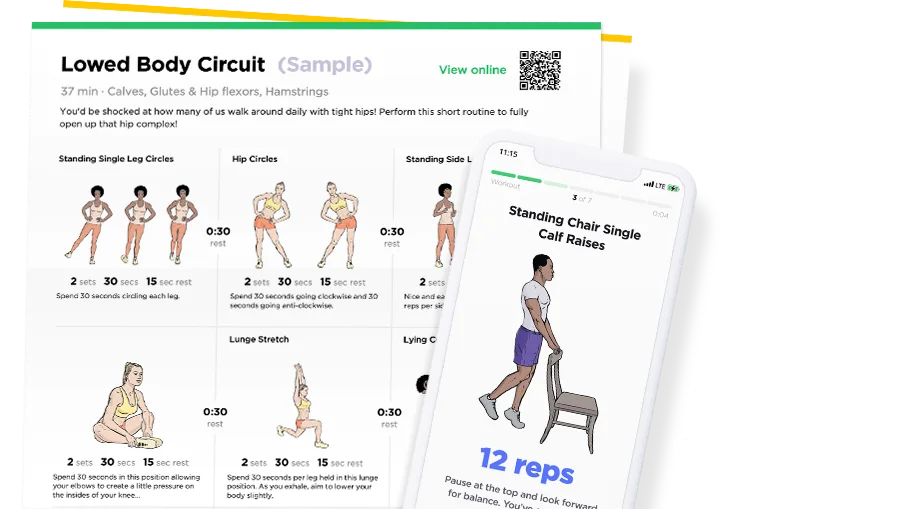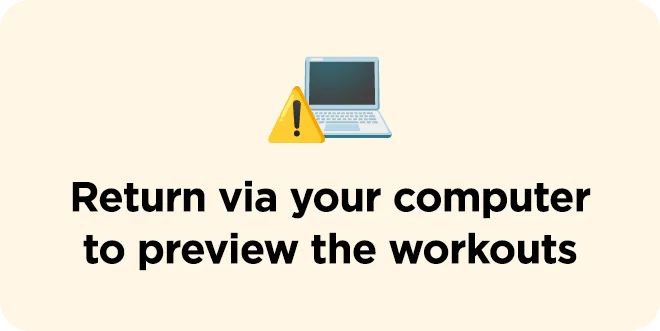Heart Harmony: Mind-Body Yoga for Stress Reduction
Beginner-level yoga for cardiac rehab Phase 4, featuring calming stretches, breathing exercises, and meditation, promoting stress relief and heart health.

By combining physical poses, breath control, and meditation, yoga offers a comprehensive method to enhance cardiovascular health and overall wellness.
This program is designed for phase 4 (post-rehab) cardiac rehab patients with a low to moderate functional level and low risk, ideal for all ages seeking stress relief independently. It uses yoga-based stress reduction to promote calm and well-being, requiring no equipment at a beginner progression level. Delivered as a home-based (self-guided) routine, it helps you relax through gentle yoga flows, breathing, and meditation.
Exercise program details
Benefits:
- Yoga can lower levels of stress hormones like cortisol and adrenaline, which are responsible for narrowing arteries and increasing blood pressure.
- Along with improved blood pressure, regular yoga practice can also help lower cholesterol and blood glucose levels, as well as reducing heart rate.
- It achieves improved heart rate and blood pressure response by activating the parasympathetic nervous system.
- Yoga improves flexibility and strength, which can both be beneficial for overall cardiovascular health.
- Yoga can improve mood, clarity of mind and sleep quality, which are all critical for managing heart disease.
Structure and suggested frequency:
- Workouts for Weeks 1-2
Gentle yoga flows to ease into stress relief. RPE: 9-11, 4 sessions/week, 30-40 min each- Suggested Weekly Schedule for Weeks 1-2: 4 sessions/week (e.g., Mon: “P4 Wk1-2: Gentle Calm Flow”, Tue: “P4 Wk1-2: Soft Stress Release”, Wed: “P4 Wk1-2: Quiet Mind Sequence”, Thu: rotate), 30-40 min each.
- Workouts for Weeks 3-4
Sustained mindful poses for deeper stress relief. RPE: 11-12, 4 sessions/week, 40-50 min each- Suggested Weekly Schedule for Weeks 3-4: 4 sessions/week (e.g., Mon: “P4 Wk3-4: Mindful Tension Release”, Tue: “P4 Wk3-4: Sustained Calm Flow”, Wed: “P4 Wk3-4: Deep Peace Sequence”, Thu: rotate), 40-50 min each.
- Workouts for Weeks 5-6
Extended relaxation sequences for peak stress relief. RPE: 11-12, 4 sessions/week, 50-60 min each- Suggested Weekly Schedule for Weeks 5-6: 4 sessions/week (e.g., Mon: “P4 Wk5-6: Extended Calm Flow”, Tue: “P4 Wk5-6: Deep Relaxation Sequence”, Wed: “P4 Wk5-6: Peaceful Mindful Flow”, Thu: rotate), 50-60 min each.
- Workouts for Weeks 7+
Sustained relaxation sequences for ongoing stress relief. RPE: 11-12, 4 sessions/week, 50-60 min each)- Suggested Weekly Schedule for Weeks 7+: 4 sessions/week (e.g., Mon: “P4 Wk7+: Sustained Calm Sequence”, Tue: “P4 Wk7+: Deep Peace Flow”, Wed: “P4 Wk7+: Mindful Relaxation Peak”, Thu: rotate), 50-60 min each.
Design rationale and notes
- Alignment with AACVPR/ACSM: Phase 4 stress reduction for low-to-moderate function with gentle yoga (RPE 9-11 to 11-12), 4 sessions/week, 30-60 min, beginner-friendly, with “Corpse” as extended relaxation.
- Program Breakdown: Weeks 1-2: 11 poses for gentle flows; Weeks 3-4: 12 poses with sustained holds; Weeks 5-6+: 12-14 poses with extended breathing/meditation.
- Yoga-Based Focus: Poses target stress areas (spine: “Cat Pose,” hips: “Bound Angle,” shoulders: “Thread the Needle”), with breathing (“Ocean Breathing,” “Yogic Breathing”) and “Meditation” for mental calm, ending with 3-min “Corpse.”
- Claudia Giacalone, MS, ACSM-CEP, CCRP, ACSM-EIM 3
- Sean Fournier, MS, ACSM-CEP, EIM-3
Disclaimer: Clinicians should review this program carefully to ensure its appropriateness and safety for each individual patient before assigning it.
Updated Mar 31, 2025



